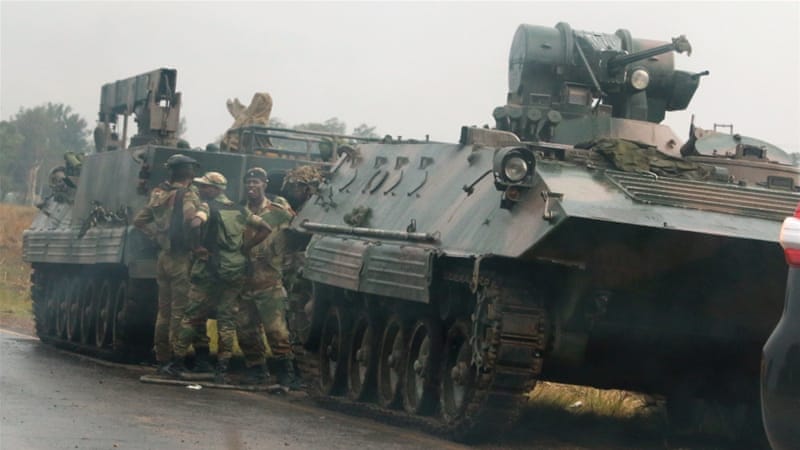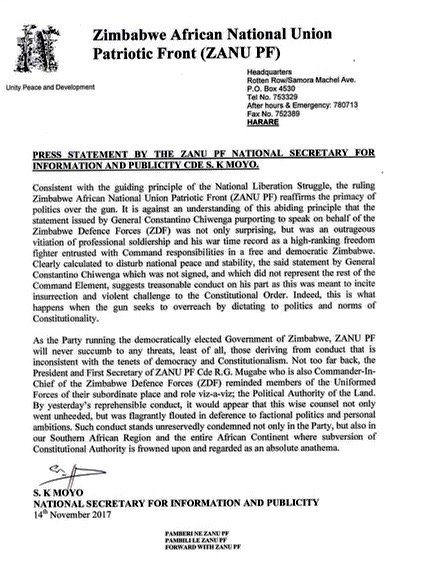ሕዝቢ ኤርትራ ብኩሉ መነባብሮኡ በቲ ዘስካሕክ ጭቆናን ወጽዓን በቲ ውልቀ-መላኺ ስርዓት ሕጅስ ይኣክል ኢሉ ኣብ ከተማ ኣስመራ ሰላማዊ ሰልፊ ብምግባር ዘርኣዮ ተባዕ ተቃውሞ ብመን ካበይ ተበጊሱ ብዘይገድስ እቲ ሕቶ ሕዝባዊ ሕቶ ድኣ እምበር ሕቶ ሓደ ክፋል ሕዝብናን ወይ ድማ ናይ ሓደ እምነት ምእማናን ኣይኮነን፡፤ እዚ ከምዘይኮነ ድማ እቲ ስዒቡ ነዚ ተቃውሞ ደጊፋ ኣብ መላእ ዓለም ዝተኻየደ መንፈስ ሓድነትን ኤርትራውንትን ዝመልኦ ምስክር ደለይቲ ፍትሒ ሓድነቶም ናይ ሓድሕድ እምነቶምን ዘንጸባረቀ ኢዩ ነሩ፣ እዛ ሎሚ ኤርትራ ተባሂላ ትጽዋዕ ሃገር እቲ ክርስትና ኣብ 4ይ ክፍለ ዘመን እቲ እስልምና ድማ ኣብ 6ይ ክፍለ ዘመን ካብ ዝአቱ ክልቲኡ ኣብ እስልምናን ክርስትናን ዝኣምኑ ሕዝብታት ኤርትራ ኣብ ነንሕድሕዶም ተኸባቢሮም ኢዮም ኣሽሓት ዓመታት ብሰላም ክነብሩ ጸኒሖም ኣለዉን ክህልዉን ድማ ኢዮም፣ ልክዕ ኢዩ ፖሊቲካውያን ባዕዳውያን ይኹኑ ዘበታውያን ንብዝሓዊ መንነታት ኤርትራ/ሃይማኖት፣ ዓሌት፣ ቦታ፣ኣውራጃ/ እናመዝመዙ ንሕዝቢ ፈላልዮም ክገዝኡ ኣብዚ 65 ዓመታት ዝረኤናዮን ዝተመኰርናዮን ኢዩ፣መሃንድስ ናይዚ ኩሉ ድማ ውልቀ-መላኺ ኢሳያስን ወድቡን ሰልፉን ኢዮም፣እዚ እኩይ ባህሊ ናይ ጽል እን ቅርሕትን ድማ ክሳብ ሎሚ ኣሰር ውርሻኡ ኣብ ዘዝተበገሰ ሕዛባዊ ቃልሲ ክዕንቅፈናን፣ ክዕንቅጸናን ጽኒሑን ኣሎን፡፤ በገላልጻ ማክስ ወበር/ Max Weber/ The Idea of State/ ኤርትራ ድሕሪ ስማዊ ናጽነት ኤርትራ ማለት ካብ 1993 ክሳብ ሎሚ 2017 ኤርትራ ከም ሉዑላዊት ሃገር ትፍለጠሉ ኣብ ዓለም ኣባል ሕቡራት ሃገራት ዓለም ብምዃን ድኣ እምበር ውሽጣዊ ናይ ሕዝቢ ሉዑላውነት ዘይብላ ሃገር ኢያ እዚ ማለት ድማ ክሳብ ሎሚ መግለጺ መንግስትን ትካላትን ዘይብላ፣ ብዓቢዩ ድማ ቅዋም ሃገርን ሕዝብን ዘይብላ፣ ሓጋግን፣ፈጻምን ፣ ፈራድን ትካላት ይኹን ብፍጽም ነቲ ኣብ ሓንቲ ሃገር ከተማልእ ዝግባኣ ዘይተማልእ ድኽምቲ ሃገር ብወልቀ-መላኽን ውሑዳት መጋበርያታቱን ትካየድ ሃገር ምዃና ይትረፍዶ ንሕና ኤርትራውያን ሕብረተ-ሰብ ዓለም እውን ዝፈልጦ ኢዩ። ኣብ ናይ ሎሚ ጽሑፈይ ብዛዕባ እዚ ሎምቅነ ክካየድ ዝጸንሔን ዘሎን ከመይ ዝኣመሰላ ዕላማን እስትራጅን ክሕዝ ኣለዎ ብዝብል ርእይቶይ ክገልጽ ኣፍቅዱለይ፣ ነዚ ሓተታ ንኸቀርብ ዝተጠቀምክዎም ጽሑፋት ድማ ኩሎም ብዛዕባ ምስግጋር ካብ ምልክነት ናብ ደሞክራስያ ዝብል ጽሑፋት ኢዩ። ነዚ ሓተታዚ ኣብ ኣርባዕተ ክፋላት ገረ ክገልጾ ኢየ፡፤
1. ምጥቃም ፖሊቲካዊ ናዕቢ
2. ዝተመርጸ ምቅዋም
3. ኣብነታዊ ብድሆ
4. ኣብ ድኽመታት ምልካዊ ስርዓት ምትኳር
1. ምጥቃም ፖሊቲካዊ ናዕቢ
ሕዝቢ ኤርትራ ኣብ ፍርሕን ሓይልን ኣብ ዘይብሉ ሁሞት፣እቲ ዝውሰድ ተቃውሞ ሓደገኛነቱ ክውሕድ ኣለዎ፣እምነት ሓድሕድ ዝፈጥር ክኸውን ኣለዎ እምበር ብሓደ ሕቶ ምስ ዝለዓል ቀልጢፋ ክቅህም ይኽእል፣ ኣብ ኤርትራ እቲ ካብ 1993 በብእዋኑ ዝተረኽበ ፣ ከም ንኣብነት፣
- ሕቶ- ሰራዊት ህግሓኤ ድሕሪ ናጽነት- ኣድማሳዊ ሰብኣዊ መሰል/ ዓንቀጽ 25
- ሕቶ- ውጉኣት ሓርነት- ኣድማሳዊ ሰብኣዊ መሰል- ዓንቀጽ 25
- ሕቶ- ሰብስልጣን/ኣባላት መሪሕነት ህግድፍ- ኣድማሳዊ ሰብኣዊ መሰል- ዓንቀጽ 21
- ሕቶ- ፎርቶ ኣስመራ- ኣድማሳዊ ሰብ ኣዊ መሰል -ዓንቀጽ 21
-ሕቶ ኣርቶዶክሳዊት ቤት ክርስትያን- ኣድማሳዊ ሰብኣዊ መሰል ዓንቀጽ 18
- መልእኽቲ ኣቡናት ካቶሊካውያን ኤርትራ- ኣድማሳዊ ሰብኣዊ መሰል/ዓንቀጽ 1
- ሕቶ- ሓለፍቲ ቤት ትምህርቲ ድያእ ኢስላምያ/አኽርያ- ኣድማሳዊ ሰብኣዊ መሰል ዓንቀጽ 18
እዚ በብእዋኑ ዝተላዕለ ተበግሶታት ዝተወስነ ሕቶታት ዘልዓለ ድኣ እምበር ውድቀት ምልካዊ ስርዓት ዝጠልብ ኣይነበረን፣ እነተኾነ ግን ዝተወሰነ ዕላማታት ኣዓዊቱ ኢዩ። ዓወት ናይዚ ዝተረኽበ ናይ ሰብ መሰል ምሕታትን ምቅዋምን እቲ ሕቶታት ብሕዝቢ ተቀባልነትን ደገፍን ምስዝረክብ ኢዩ፡ ኩሉ ተቃውሞ ንመሰልካ ብምሉኡ እቲ ሕዝቢ ክሳተፎ ናይ ግድን ኣይኮነን፣ እቶም ቀንዲ ናይ ሕዝቢ ናዕቢ ስትራቲጂ- ውጥን ተለምቲ ቀጻልን ፍሉይን ካብ ሓደ ደረጃ፣ ካልኣይ ደረጃ ፣ ኣብ መጨረሻ ድማ እቲ ዝዓበየ ስትራተጂ እናውጽኡ ስርዓት ክሳብ ዝወድቀሉ ግዜ ዝሓስቡ ክኾኑ ኣለዎም። እቲ በብ ግዜኡ ዝተራእየ ሰልፍታት ብዓቀኑን ዓይነቱን ክፈላለ ናይ ግድን ኢዩ፡፤ እስከ ብብክፋሉ ንርኣዮ፡፤
2. ዝተመርጸ ምቅዋም
ዝተመርጸ ምቅዋም ወይ ሕዝባዊ ናዕቢ፣ ኣብቲ መጀመርታ መድረኽ ቃልሲ ኣንጻር ምልክነት ዝተፈላለዩ ወፈራታት ብዝተፈላለየን፣ፍሉይን ዕላማታት ክብገስ ከሎ ጠቓሚ ኢዩ፣ ንኣብነት ኣብ ኩነታትና ምስ እንርኢ እቲ ኣብ ላዕሊ ዝተጠቅሰ በብእዋኑ ዝተረኽበ ውጺኢቱ እዚ ሎሚ ንርእዮ ኢዩ።
ኣብ ምውጣን ስትራተጂ ንዝተመርጸ ምቅዋም ንምትላም፣ እቲ ኣገዳሲ ፣ ነቲ ጉዳይ ምልላይን፣ ፍሉይን ውሱንን ሕቶታት ወጽዓ ሕዝቢ ነቲ ሓፈሻዊ ጭቆና ናይቲ ምልክነት ዝገልጽ ክኸውን ከምዘለዎ ምርዳ እ እዩ፣ ከምዚ ዝኣመሰለ ሕቶታት እቲ ቅኑዕ ሽቶ/ታርገት ንወፈራታትካ ከተካይድ ንሕመረት ናይቲ ዓቢይ ስትራተጂ ዕላማታቱን ንምዕዋት ይሕግዘካ፡፤
እዚ ናይ ቀረባ ስትራተጂካዊ ዕላማታት በቶም ተቃለስቲ ደለይቲ ፍትሒ ክዕወት ዘለዎ ኮይኑ እዚ ድማ ስዒቡ ተኸታታሊ ዓወታት ንሞራል ደለይቲ ፍትሒ ዘሕይልን፣ዘበራትዕን ኢዩ፣ደንበ ፍትሒ እናሓየለ ደንበ ምልኪ ድማ እናደኸመ ይኸይድ።
ስትራተጂ ናይ ዝተመርጸ ተቃውሞ ኣብቲ ኣገዳሲፖሊቲካውን፣ ቁጠባውን ማሕበራውን /ባህላውን ከተኩር ኣለዎ፣ እዚ ክበሃል ከሎ ናይቲ ምልካዊ ስርዓት ወኒንዎ/ገቢትዎ ዘሎ በብሓደ ከምዝኸስሮን እቲ ደንበ ተቃውሞ ድማ እናኸሰቦ ይኸይድ፣እንተታኻኢሉ ድማ ኣብታ ናቱ ዝደኸመት ወይ ተሳቅዮ ጐድኑ/Identifying the Achilles' heel /ምህራሙ ኣገዳሲ ኢዩ፡፤ ድኽመታት ምልካዊ ስርዓት ኤርትራ ኣለሊኻ ምቅላሱን ነቲ ምስኡ ዝጸንሔ ሕዝብን ትካላቱን ምፍራስ፣ እቲ ቀንዲ ናይ ዝተመርጸ ዓይነት ተቃውሞ ኢዩ።
3. ኣብነታዊ ብድሆ
ኣብ መጀመርያ እቲ ዝፍጸም ወፈራታት ንምልክነት ንምውዳቅ ፣እቲ ፖሊቲካዊ ሕቶታት ብ ዓቀኑ ዝተወሰነን ፍሉይን ክኽውን ኣላዎ፣ ንኣብነት እሱራትና ይፈትሑ ዝብል ሕቶ፣ ነዚ ሕቶዚ ብዝለዓለ ስኢልካ ምስ ምስክራቱ ኣብ ሕዝቢ ከምዝሰርጽን ዘተባብዕን ገርካ ምቅራብን፣ ንቀጻልነት እቲ ቃልሲ ንደሞክራስያዊ ለውጢ ምድላውን፣ሕዝቢ ንምልክነት ከምዘይተሓባበርን ምግባር ኢዩ፡፤ እቲ ኣብ ውሽጢ ኤርትራ በብግዜኡ ዝተራእየ ናዕቢ ወላ እኳ ብውሑዳት ይበገስ ኣብነታዊ ብድሆ ኣንጻር ምልክነት ኢዩ ነሩ። አንጻር እዚ ሕዝባዊ ናዕቢ ብምልካዊ ስር ዓት ኢሳያስ ናይ ሞትን መቁሰልትን ቀሊል ከምዘይነበረን ከምዘሎን ድማ ፍሉጥ ኢዩ። ከምዚ ዓይነት ተበግሶታት ንቆላሕታን ምልዕዓልን ማሕበረ ሰብ ዓለም ድማ ይስሕብ፡፤ከምቲ ብ1989 ኣብ ከተማ በዪንግ ኣብ ኣደባባይ ትያናማን ብተማህሮ ዝተኻየደ ናዕቢ፣ ብ 1988 ሕዝባዊ ናዕቢ ኣብ ቡርማ -ምያናማር ቆላሕታ ማሕበረ-ሰብ ብምርካቡ ኣብነታዊ ብድሆ ኢዩ ዝበሃል፣ ናይዚ ከምዚ ዓይነት ብድሆ ኣንጻር ምልክነት ሞትን ማእሰርትን ዓብይ ሰብኣዊ ጉድኣት ከምዝርከቦ እቶም ተለምቲ ስትራተጂ ክሓስቡሉ ዘለዎም ጉዳይ ኢዩ።
ምንጭታትን ሓይልን ናይ ሓደ ምልክነት ብሓደ ግዜ ከተድክሞ ኣይከኣልን እንታይ ድኣ የድሊ ነቲ ስርዓት ብፍርሓት ወይ ብፍቲ ዘገልግል ሕዝብን ትካላትን ኣንጻሩ ከምዝለዓል ምግባር ኢዩ እቲ ቀንዲ ናይ ርሑቅ ጠመተ ናይቶም መራሕቲ ሕዝባዊ ናዕቢ፡፤ እዚ ከምዚ ኣይተረኽበን ከተዕውቶ ድማ ብርቱዕ ኢዩ፣ሰለዚ ሓደ ምልካዊ ስርዓት ብናይ ሓደ እዋን ሰላማዊ ሰልፍታት ዝወድቅ ኣይኮነን።
እንታይ ድኣ የድሊ፣ ምዝርጋሕ ሓላፍነት፣ ኣብ መጀመርያ ኣብ ከምዚ ሁሞት ናይ ቃልሲ ኣንጻር ምልክነት እቲ ቀንዲ ቃልሲ ብውሑዳት ተበጊሱ፣ ኣብቲ ቀጻሊ ድማ ምስ ዝተፈላለየ ዕላማታት፣ ንኣብነት ተመሃሮ ብጉዳይ ትምህርቶም ይለዓሉ ፣ ሰራሕተኛታት ብጉዳይ ደሞዞም ይለዓሉ፣ መራሕቲ ሃይሞኖት ብጉዳይ መሰል እምነቶም ይለዓሉ፣ ፖሊስ- ወተሃደር ብመሰል ህልዊ ሰብ ኣዊ ኩነታቶም ይለዓሉ፣ ኩሉ ዜጋ ብሰብ ኣዊ መሰሉ ይለዓል፣ እዚ ኣብ ዝሓለፈ ተበግሶታት ሕዝባዊ፣ ዝተመርጸን፣ ኣብነታዊ ብድሆን ንምልክነት ንምልጋስ ዝኣመተ ኢዩ ነሩ ክበሃል ይከኣል፣ ከምዚ ምንባሩ ኣብዚ ዝስዕብ ራብዓይ ክፋል ፣" ኣብ ድኽመታት ምልካዊ ስር ዓት ምትኳር " ኣብ ዝብል ክግልጾ ክፍትን ኢየ።
4. ኣብ ድኽመታት ምልካዊ ስርዓት ምትኳር
ኣብ ምልካዊ ወልቀ-መላኺ ስርዓት ኢሳያስ እንተረኤና፣ እንታይ ኢዩ እቲ ድኹም ጐድንታቱ ምልላይ ንተለምቲ ሰፊሕን ዓብይን ስትራተጂ ኣገዳሲ ኢዩ። መጽናዕትታት ብትካል ኣልበርት ኣይንስተይን ፣ ብፕሮፈሶር ጂን ሻርፕ ከምዝምስክሮ፣ ምልካውያን እውን ድኹም ጐድንታት ኣለዎም እሞ እቶም ኢ-ጐነጻዊ ቃልሲ ዘካይዱ ተቃለስቲ ካብ ምልክነት ናብ ዶምክራስያ፣ ነዚ ድኹም ጐድንታት ናይ ምልካውያን ክሃርሙ ኣልዎም ይብል። ብወገን ናይ ኤርትራ ምልካዊ ስርዓት ድኹም ጐድንታቱ ብዙሕ ክነሱ ንሕና ኣብ ደንበ ተቃወምቲ ግን ገና ኣቃልቦ ዘይሃብናዮ ኣሎ፣ ደንበ ደለይቲ ለውጢ ናይ መጽናዕትን ስትራተጅን ትካል ክሳብ ሕጂ ኣየጥረየን፣ እዚ 20 ዓመታት ኣብ ነንሕድሕዱ ኢዩ ክቈራቈስ ጸኒሑን ኣሎን። ን ኣብነት እቶም ኣብ 2012 ኣብ ሰምየን ኣፍሪቃን ማእከላይ ኣፍሪቃን ናይ ሕዝቢ ምል ዕዓል ዘበገሱን ንምልክነት ዘውደቁን፣ ኣብ ትካል ኣልበርት ኣይንስተይን ከምኡ እውን ኣብ ቦስንያ - ሀርሶጎቪና ስልጥና ዝወሰዱ ኢዮም ነሮም ኣባና ግን ከምዚኦም ባእታታት ክሳብ ሕጂ ኣየጥረናን ፡፤ ደንበ ተቃውሞና በርገሳዊ ይኹን ፖሊቲካዊ ክእለትን ብቅዓትን ንኸጥሪ ድልየትን ባህግን ዘለዎ እውን ኣይመስልን ኣብ ክሊ ናይ ምንጽጻግን፣ ንሕና ንሶም፣ እዚኦም ከለዉ እናተባብሃልካ ኣብ ውሀም/hallucinations ይነብር ኣሎ፡፤
ድኽመታት ናይ ኤርትራ ምልክነት እንታይ ይመስል፣
1. እቲ ስርዓት ሕዝቢ ከመሓድር ከምዘይኽእል ናይ ሕዝቢ ደገፍ ከምዘይረክብ ምግባሩ
2. ሰብኣውን ንዋታውን ምንጭታቱ ምድካም
3. ናይ ወጻኢ ዝምድናታቱ ምብታኽ
4. ሰራዊት ኤርትራ ንሕዝብን ዕላማታቱን እምበር ንምልክነት እምቢ ንክብል ምትብባዕን ምልዕዓልን
5. እቲ እንኮ ቲቪ ኤርትራን ማሕበራዊ መራኸቢ ብዙሓን መጉልሕ ናይ ምልካዊ ስር ዓት ምድንጋራትን ሓሶትን ምፍሻል፣ ን ኣብነት መጉልሕ ናይ ምልክነት ኮይኑ ዘሎ መስከም ነት ብዝኾነ ኣገባብ ከምዘይሰርሕ ምግባር
6. ቁጹራትን ዕሱባትን ደገፍቲ ምልካዊ ስር ዓት ኤርትራ ኣብ ደሞክራስያዊ ሃገራት ዝቅመጡ ብገበን ምኽሳሶምን ፣ ምቅራቦምን
7. በቶም ሉኡኻቱ ዝካየድ ዘይሕጋዊ ቀረጽ ምኽፋል ብሕጊ እታ ሃገር ጠጠው ምባሉን፣ ነቶም ኣምባሳዶሮት ናቱ ድማ ብሕጊ ው ዕል ጀነቫ ምኽሳሶም ኣብ ቤት ፍርዲ ምቅራቦምን፣ምኽንያቱ ዘካይድዎ ዘለዉ ብሕጊ ኣህጉራዊ ውዕል ክልኩል ኢዩ፣ ሓደ ኣባል ናይ ውጻኢ ዝምድና ቀረጽ ካብ ዜጋታት እታ ሃገር ክእክብ ብሕጊ ክልኩል ጥራሕ ዘይኮነ ዘይቅቡል ሰብ/ፐርሶና ኖን ግራታ ተባሂሉ ካብቲ ሃገር ይስጐግ፡፤
ናብቲ ሓያል ጉድኒ ናይ ምልካዊ ስርዓት ምእማት፣ እቲ ናይ ርሑቅ ቃልሲ ካብ ምልክነት ናብ ደሞክራስያ እናተደልየን ብዙሓት እውን ክሳተፉ ምስ ዝጅምሩ፣ እቶም ተለምቲ ስትራጂ ሓይሊ ናይ ምልካዊ ስርዓት ምዕቃን ከድልዮም ኢዩ፣ ኣብዚ እቲ ዕላማ ምልዕዓል ሕዝባዊ ናዕቢ ንደንበ ደለይቲ ፍትሒ ዘሕይል ንምልካዊ ስርዓት ድማ ፈርከሽከሽ ኣቢሉ ኣብ መጨርሽታ ምውዳቁ ዝኸውን ምልክት ድማ ሰራዊት ኤርትራን ሕዝቢ ኣብ ውሽጥን ደገን ምስ ደለይቲ ፍትሒ ክጽንበር ከሎ ኢዩ፡፤
ደንበ ተቃውሞ ኤርትራ ክሳብ ሕጂ እቲ ብቅዓታትን ክእለትን ቃልሲ ካብ ምልክነት ናብ ደሞክራስያ ኣየጥረየን ኣሎ ኣብቲ ናይ ግዜ ብረታዊ ቃልሲ ኣተሓሳሳባ ኢዩ፣ ጅብሃ፣ ሻዓብያ፣ ኢስላም ፣ ክርስትያን፣ ከበሳ ፣ መታሕት፣ ዓረብ ፣ ትግርኛ፣ ብሔር፣ ኣውራጃ፣ እወ እዚ ኩሉ መንነትና ዝገልጹ ባእታት ኢዮም፣ ሰለዚ እዚ ኣይኮነን እቲ ንሕና ክንጥምቶ ዘሎና እንታይ ድኣ ነዚ መንነታት እዚ መዝመዙ ሕዝባን ዘሳቂ ዘሎ ምልክነት ናይ ሓደ ውልቀ ሰብ ኢዩ። ነዚ ዝጥቀሙ ኣብ ውሽጢ ደንበ ቃልሲ ካብ ምልክነት ናብ ደሞክራስያ እውን ከምዘሎዉና ክንፈልጥ ኣሎና ፣ ምኽንያቱ ካብ ናይ ሕጂ ምልክነት ዝገደዱ ከይኮኑና።
እምበኣር ኣብ መጨርሽታ እተን ኣብ ላዕሊ ዝጠቀስኩወን ዓናቅጽ ካብ ኣድማሳዊ ሰብ ኣዊ መሰላት ንምዝካር ዝ ኣክል ኣብዚ ታሕቲ ኣስፊረየን ኣሎኹ።
ዓንቀጽ 1
ኩሎም ደቂ-ሰባት ሓራ ኮይኖም ዝተወልዱ፣ ከም ኡ እውን ማዕረ ክብርን መሰልን ዘለዎም ኢዮም። ኣእምሮን ሕልናን ዝተዓደሉ ብምዃኖም ድማ ኣብ ነንሕድሕዶም ብመንፈስ ሕውነት ኪቀራረቡ ይግባእ
ዓንቀጽ 18
ነፍሰ-ወከፍ ሰብ ንሓርነት ናይ ሓሳብ፣ሕልናን፣ ሃይማኖትን፣ መሰል ኣለዎ። እዚ መሰልዚ ፣ሃይማኖት ወይ እምነት ናይ ምልዋጥ ሓርነት፣ ከምኡ እውን ብውልቂ ወይ ምስ ካልኦት ብምምሕባር፣ብቅሉ ዕ ወይ ብብሕቲ ንሃይማኖቱ ወይ እምነቱ ብምምሃር፣ስራሕ፣ ኣምልኾትን ምክትታል ትግባረን ናይ ምግሃድ ሓርነት ዘጠቃለለ ኢዩ።
ዓንቀጽ 21
1. ነፍሰ-ወከፍ ሰብ ኣብ ናይ ሃገሩ መንግስቲ ብቀጥታ ወይ ብሓርነት ብዝተመርጹ ወከልቲ ንኽሳተፍ መሰል ኣለዎ።
2. ነፍሰ-ወከፍ ሰብ ኣብ ሃገሩ ንዘሎ ሕዝባዊ ኣገልግሎት ብማዕርነት ንኽጥቀመሉ መሰል ኣለዎ።
3. ድልየት ሕዝቢ መሰረት ስልጣን መንግስቲ ኽኸውን ይግባእ፣ እዚ ድልየትዚ ከኣ ኣድማሳውን ማዕረ መሰል ምድማጽን ብዘለዎ ከም ኡውን ብምስጢራዊ ወይ ከምዚ ዝኣመሰለ ሓራ ናይ ምድማጽ ኣገባባት ብዚካየድ ውቅታውን ሓቀኛን ምርጫ ክግለጽ ይግባእ።
ዓንቀጽ 25
ነፍሰ - ወከፍ ሰብ ንጥዕናን ድማዕን ናይ ገዛእ ርእሱን ናይ ስድራ-ቤቱን ብቁዕ ዝኾነ ደረጃ መነባብሮ ንኽረክብ መሰል ኣለዎ፣
ነዚ ዓናቅጽ ኣብዚ ሓተታ ንኸተሓሕዞ ዝያዳ ነቲ ክልዓል ዝጸንሔን ዘሎን ሰላማዊ ሰልፍታት ኣብ ውሽጢ ኤርትራ ይኹን ኣብ ወጻኢ ነቲ ሓደን ዝቀርቦ ነቲ ካልእ ከኣ ዘይምልከቶ ገሮም ዝርእይዎ ኣላዉ፣ እዚ ድማ ካብ ጸቢብ ኣተሓሳስባ ዝምንጩ፣ ነቲ ናይ ምልካዊ ስርዓት ምድንጋራት ምትላላትን ዕድል ዝህብ፣ ንመንፈስ ሓድነትን ሕውነትን ናይ ደለይቲ ፍትሒ ዝምርዝ ዘይተድላዪ ተርእዮ ኢዩ፡፤ ምስዚ ጽሑፍ ኣተሓሒዘ ንኣዳለውቲ ሰላማዊ ሰልፍታት ኣብ ወጻኢ መልእኽቶም ንቆላሕታ ዝዕዘበካን ዝርእየካን መሳጢ ድኣ ክኸውን ኣለዎ እምበር ዝኾነ ከም ስሚዒቱ ብሽም እምነቱ ወይ ክፋል ሕዝቡ ክፍክርን ክጃሃርን ነቲ ምሳኻ ዘሎን ሓላፍ መገድን ቆላሕታ ዘርሕቅ ኢዩ፣ ስለዚ ኣዳለውቲ ሰላማዊ ሰልፍታት፣ ምድላው ሰላማዊ ሰልፊ፣ ቀሊል ከምዘይኮነ ተረዲኦም፣ ነየናይ ዕላማታት ክድግፉ ወይ ከዕውቱ ኣቀዲሞም ስትራተጂ ከውጽኡ ኣለዎም በሃላይ ኢየ።
ኩሉ እቲ ሰላማዊ ሰልፍታት ኣብ ውሽጢ ኤርትራ ይኹን ኣብ ወጻኢ ኣብ ኣድማሳዊ ሰብኣዊ መሰላትን ዝተመርኰሰ ኢዩ፡፤
ዝተወከስኩዎ ጽሑፋት
1. ኣድማሳዊ ኣዋጅ ብዛዕባ ሰብኣዊ መሰላት
2. ኣህጉራው ወዕል ብዛዕባ ቁጠባዉን ማሕበራውን ባህላውን መሰላት
3. ኣህጉራዊ ወዕል ብዛዕባ ሲቪላውን ፖሊቲካውን መሰላት
4. From Dictatorship to Democracy, A Conceptual Framework for Liberation, Gene Sharp, The Albert Einstein Institution
5. Max Weber, " The Idea of State"
![German coalition talks fail after FDP walks out Merkel is due to meet the German President Frank-Walter Steinmeier, who could call for new elections [Reuters]](http://www.aljazeera.com/mritems/imagecache/mbdxxlarge/mritems/Images/2017/11/20/3db196bd54cf45c1b35d97f654285eca_18.jpg)





































